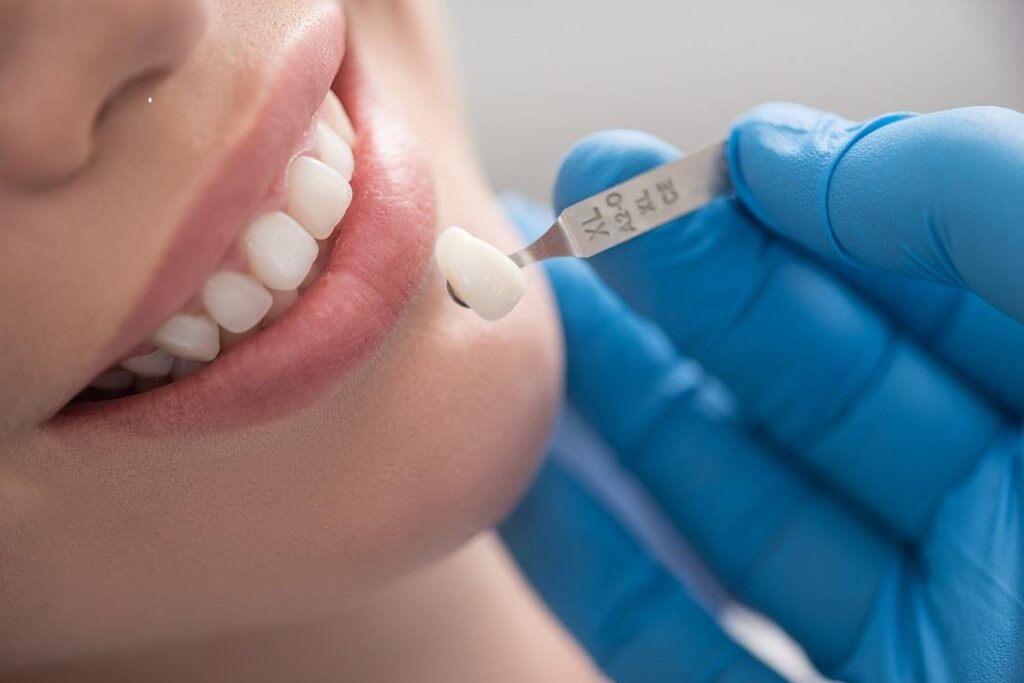Introduction to Crown Care
Dental crowns are a vital solution for various dental issues, ranging from restoring damaged teeth to enhancing cosmetic appearance. However, the longevity and effectiveness of these crowns largely depend on how well they are cared for. Crown care is not just about maintaining the crown itself but also about preserving the underlying tooth and surrounding gum health. This comprehensive guide aims to provide essential tips and insights into effective crown care, ensuring that your dental crowns remain in optimal condition for as long as possible.
Understanding Dental Crowns
Before diving into crown care, it’s important to understand what dental crowns are and their purpose. A dental crown is a cap, typically made from materials like porcelain, ceramic, or metal, that is placed over a tooth. Crowns are used to protect, cover, and restore the shape of your teeth when fillings don’t solve the problem. They are essential for restoring a tooth’s function and appearance following a restorative procedure such as a root canal, or when a tooth is excessively worn, decayed, or otherwise damaged.
The Importance of Proper Crown Care
Proper care of dental crowns is crucial for several reasons. Firstly, good crown maintenance ensures the longevity of the crown. While crowns are durable, they don’t last forever and can be damaged by habits such as teeth grinding or biting on hard foods. Secondly, proper care is essential for the health of the underlying tooth and surrounding gums. Poor hygiene can lead to problems like gum disease or tooth decay, which can undermine the stability of the crown.
Daily Care and Hygiene
The cornerstone of crown care lies in daily hygiene practices. Here are some key tips:
- Brushing and Flossing: Brush at least twice a day and floss daily. Use a soft-bristled toothbrush and non-abrasive toothpaste to avoid scratching the crown. Pay special attention to the area where the gum meets the crown, as plaque tends to accumulate here.
- Avoid Hard Foods: Chewing on hard foods like ice or hard candies can damage crowns, especially those made from porcelain.
- Regular Dental Check-Ups: Regular visits to the dentist are essential. Your dentist can check the condition of your crown and the underlying tooth, as well as clean areas that are hard to reach at home.
Dealing with Sensitivity and Discomfort
It’s not uncommon to experience sensitivity or discomfort around a new crown. If sensitivity persists, it’s important to consult your dentist. They may recommend specific toothpaste for sensitive teeth or investigate other underlying issues.
Long-Term Care Strategies
Long-term care of dental crowns involves more than daily cleaning. It includes being mindful of certain habits and conditions:
- Avoid Grinding Your Teeth: If you grind your teeth, consider wearing a night guard to protect both your natural teeth and crowns.
- Tackle Gum Disease: Since gum health directly affects the stability of crowns, it’s important to treat any signs of gum disease promptly.
- Be Cautious with Staining Foods and Drinks: Some crown materials can stain. Limiting coffee, tea, red wine, and tobacco can help maintain the crown’s appearance.
Replacing a Crown
Despite good care, crowns may eventually need replacing. The typical lifespan of a crown is about 5 to 15 years, depending on the material and your oral habits. Regular dental check-ups are vital, as they allow your dentist to monitor the condition of your crown and recommend replacement when necessary.
Conclusion
Crown care is an integral part of maintaining both your oral health and the investment you’ve made in your dental crowns. By adhering to proper hygiene practices, being mindful of your habits, and maintaining regular dental check-ups, you can ensure that your crowns stay in good condition for as long as possible. Remember, the care you put into your crowns not only preserves your smile but also supports your overall dental health.


